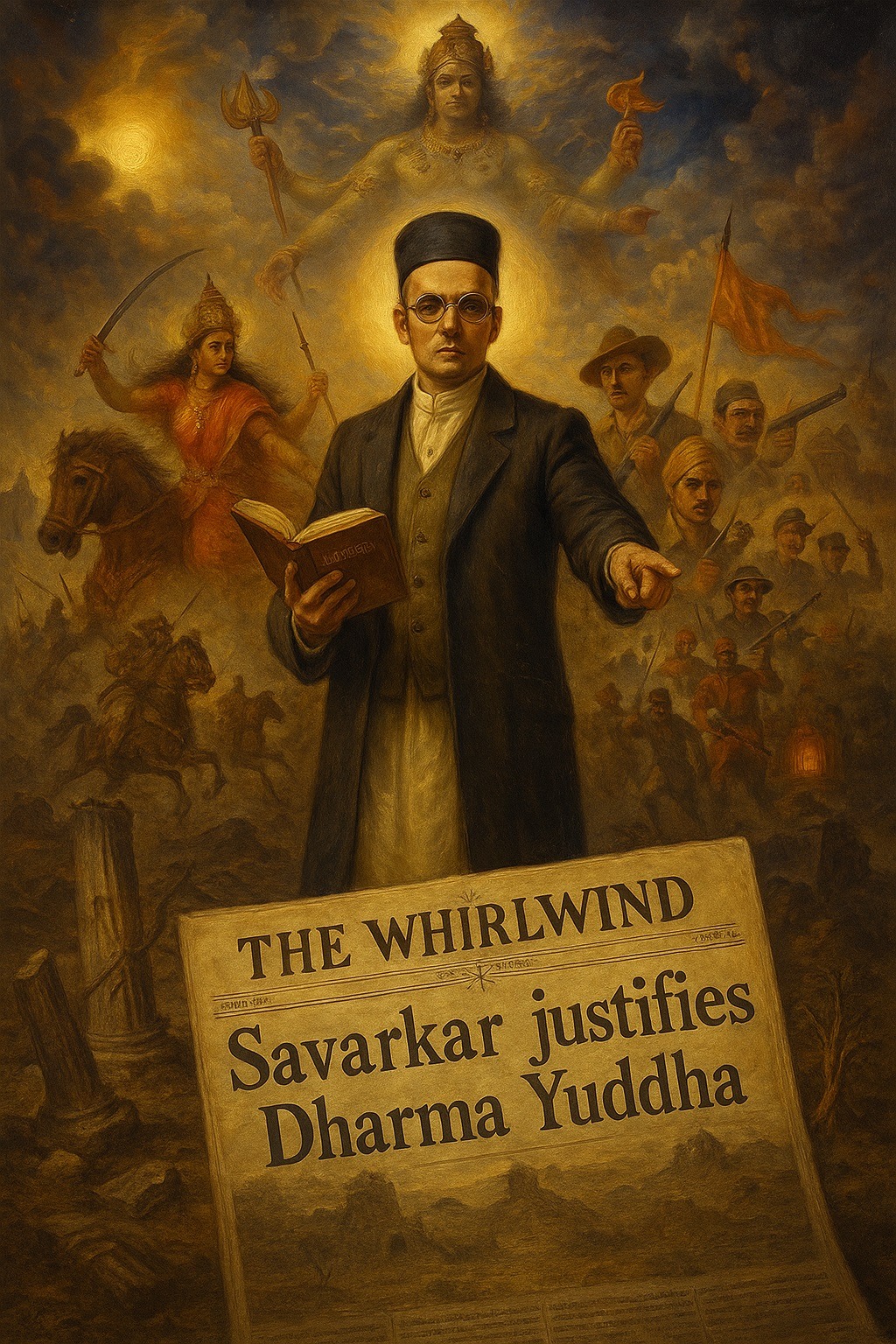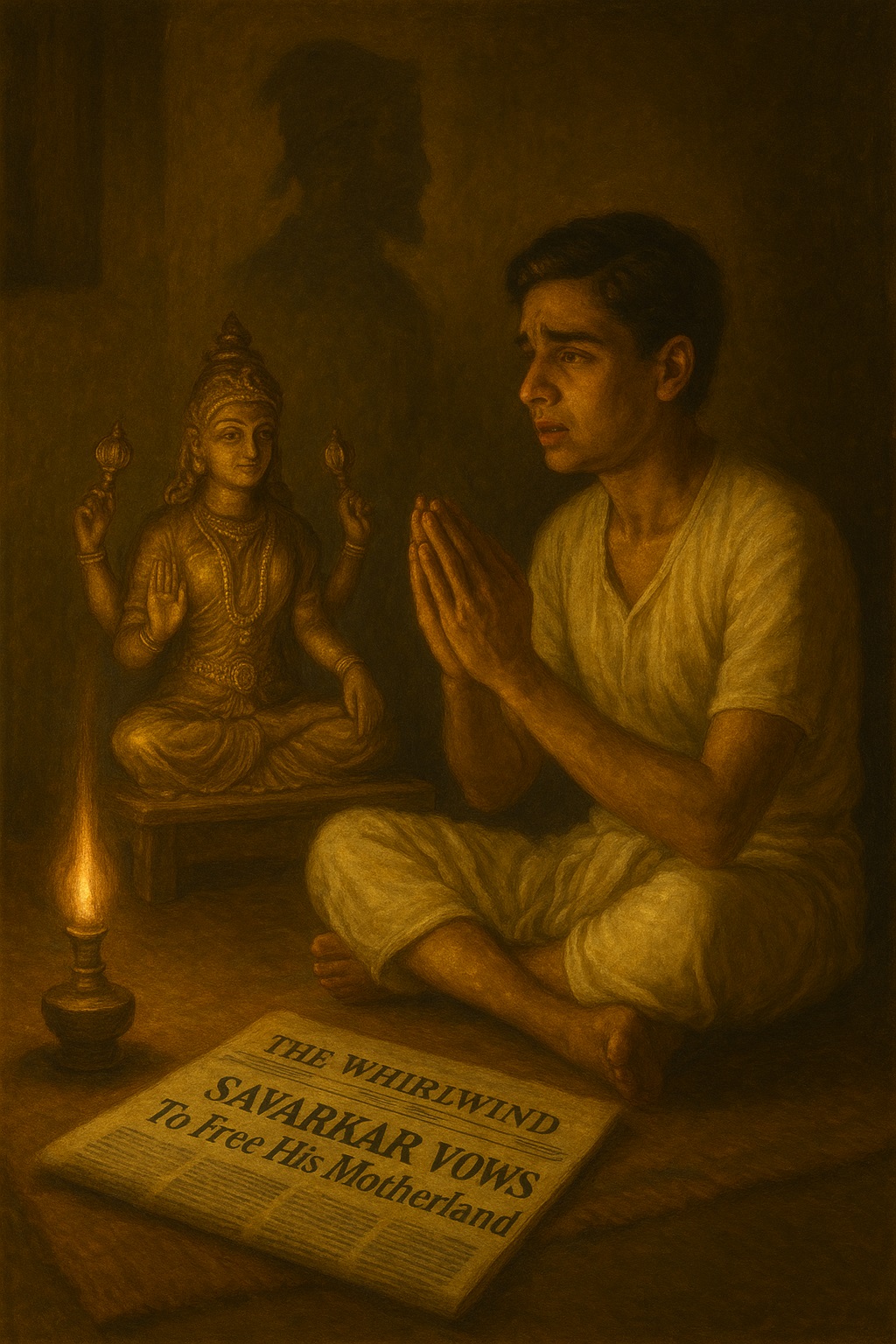Tag: Durga
-
Political Dimension of Hindutva, Part 12 Introduction – Savarkar’s Radical Philosophy of Resistance Few statements in modern Indian political thought are as provocative as Vinayak Damodar (Veer) Savarkar’s declaration that relative non-violence is a virtue, absolute non-violence a crime. This concise yet explosive maxim captures the essence of Savarkar’s departure from the dominant ‘Gandhian ethos’…
-
Political Dimension of Hindutva, Part 11 The idea of a “holy war,” known as Dharma Yuddha, against the enemies of Hindutva – particularly non-Hindu occupiers of the land – was a fundamental principle shaping Vinayak Damodar (Veer) Savarkar from his early youth. He derived this concept from the Bhagavad Gita, which speaks of the divine…
-
One night, in the town of Bhagur, a boy stood before a statue of the armed Goddess Durga. This boy was Vinayak Damodar Savarkar, and the vow he took that night would ignite a revolutionary desire to stand up against British colonial rule in India. The immediate spark was the execution of the Chapekar brothers…



